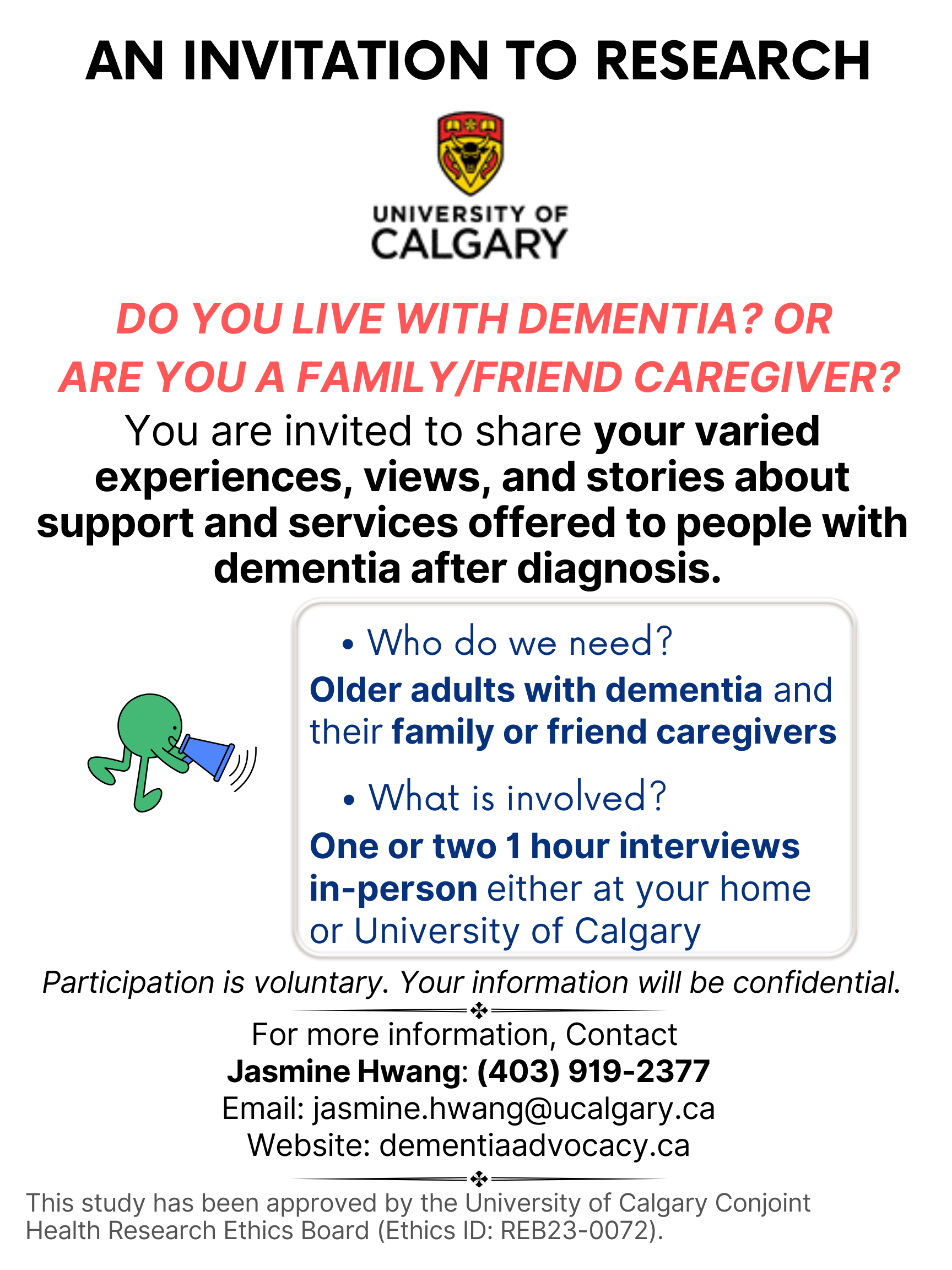
Factors Influencing the use of non-drug treatments for older adults with mild or moderate (early) dementia (REB23-0072)
An Interview-based Research Study
Problem
A research team at the University of Calgary aims to find out what hinders or helps older adults’ use of non-drug treatments for early dementia in Alberta, Canada.
Non-drug treatments are health-promoting programs offered after diagnosis such as day programs, counselling, memory training, occupational therapy, exercise, arts, social programs, and support groups. These programs can improve memory, mood, daily functioning, social inclusion, and quality of life. In the absence of cure, these programs are essential management component for dementia.
To be most helpful, these treatments are important for the earlier stages of the illness while affected persons can still learn and compensate. But many people with early dementia have trouble using the services. Without easy access, people cannot benefit from evidence-based treatments. Undermanaged dementia may result in hastened progress of the illness, poor health and quality of life for both older adults and their families.
Investigation & Impact
We are interviewing older adults with dementia and their family/friend care partner. We aim to explore their direct views, stories, and opinions regarding current dementia care and the care ought to be.
The direct perspectives of the program users and care partners will help create a full understanding of current dementia care as experienced. Their input is critical to making non-drug treatments acceptable and accessible. We will create space for changes needed to support high-quality dementia care. We anticipate that study findings will contribute to advocating for increased early-stage support programs, access, and funding towards dementia care.
Research Purpose
To understand what helps and hinders the use of non-drug treatments for older adults with early dementia
To devise solutions to improve dementia care policy, service, and practice from the patient and family perspective
I and the research team are ever so grateful to have had amazing participation from the families with their unique experiences and invaluable inputs and recommendations. Thank you!
Research Progress
%
Participant Recruitment
%
Data Collection
%
Data Analysis

Recruitment for this project is complete. Thank you for your interest!
Many thanks to amazing organizations For recruitment support

Alzheimer Society of Calgary & Dementia Network Calgary

Dementia Connections Magazine

Cognitive Neurosciences Clinic, FMC, AHS

Caregivers Alberta

Seniors Health Clinics, AHS

The Alex Seniors Health Clinic

Calgary Foothills Primary Care Network (CFPCN) Extended Health Team

Vecova Wellness Program
vecova.ca
Non-drug interventions are espeically important for the earlier stages of memory problems.
